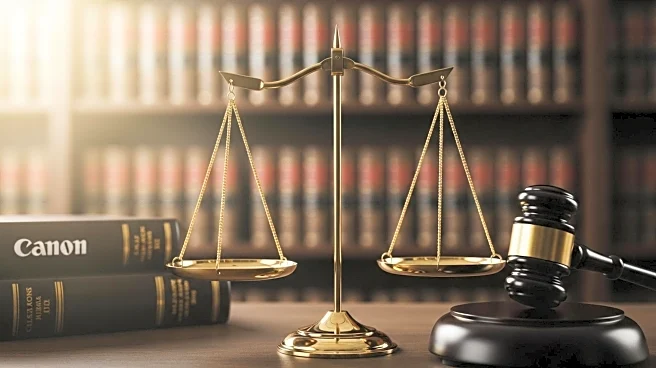What's Happening?
Former Governor Chris Christie has expressed concerns regarding Halligan's lack of prosecutorial experience in the legal proceedings surrounding James Comey's indictment. During an interview on ABC News' 'This Week,' Christie, along with ABC News' chief legal analyst Dan Abrams and Reince Priebus, discussed the implications of Halligan's role in the case. Christie emphasized the challenges faced by someone who has never prosecuted before, highlighting the complexities involved in handling such a high-profile legal matter. The discussion centered around the potential impact of Halligan's inexperience on the case's outcome and the broader legal ramifications.
Why It's Important?
The critique of Halligan's prosecutorial experience is significant as it underscores the importance of expertise in legal proceedings, especially in cases involving high-profile figures like James Comey. The outcome of this case could have far-reaching implications for legal standards and practices, particularly in the context of political and governmental accountability. Stakeholders in the legal community may view this as a critical moment to assess the qualifications required for handling complex legal cases. Additionally, the public's perception of the justice system's integrity could be influenced by the handling of this case, affecting trust in legal institutions.
What's Next?
As the case progresses, there may be increased scrutiny on Halligan's performance and the strategies employed in the prosecution. Legal experts and political analysts will likely continue to monitor the proceedings, evaluating the effectiveness of the legal arguments presented. The outcome of the case could prompt discussions on the need for experienced prosecutors in high-stakes legal matters, potentially influencing future appointments and legal practices. Stakeholders, including political leaders and legal institutions, may react to the developments, shaping the discourse around prosecutorial qualifications and justice system reforms.
Beyond the Headlines
The situation raises broader questions about the criteria for appointing individuals to key legal positions, especially in cases with significant political implications. Ethical considerations regarding the qualifications and experience required for prosecutorial roles may come to the forefront, prompting debates on the balance between legal expertise and political influence. The case could also lead to discussions on the transparency and accountability of legal processes, influencing public policy and legal reforms aimed at ensuring fair and competent legal representation.









